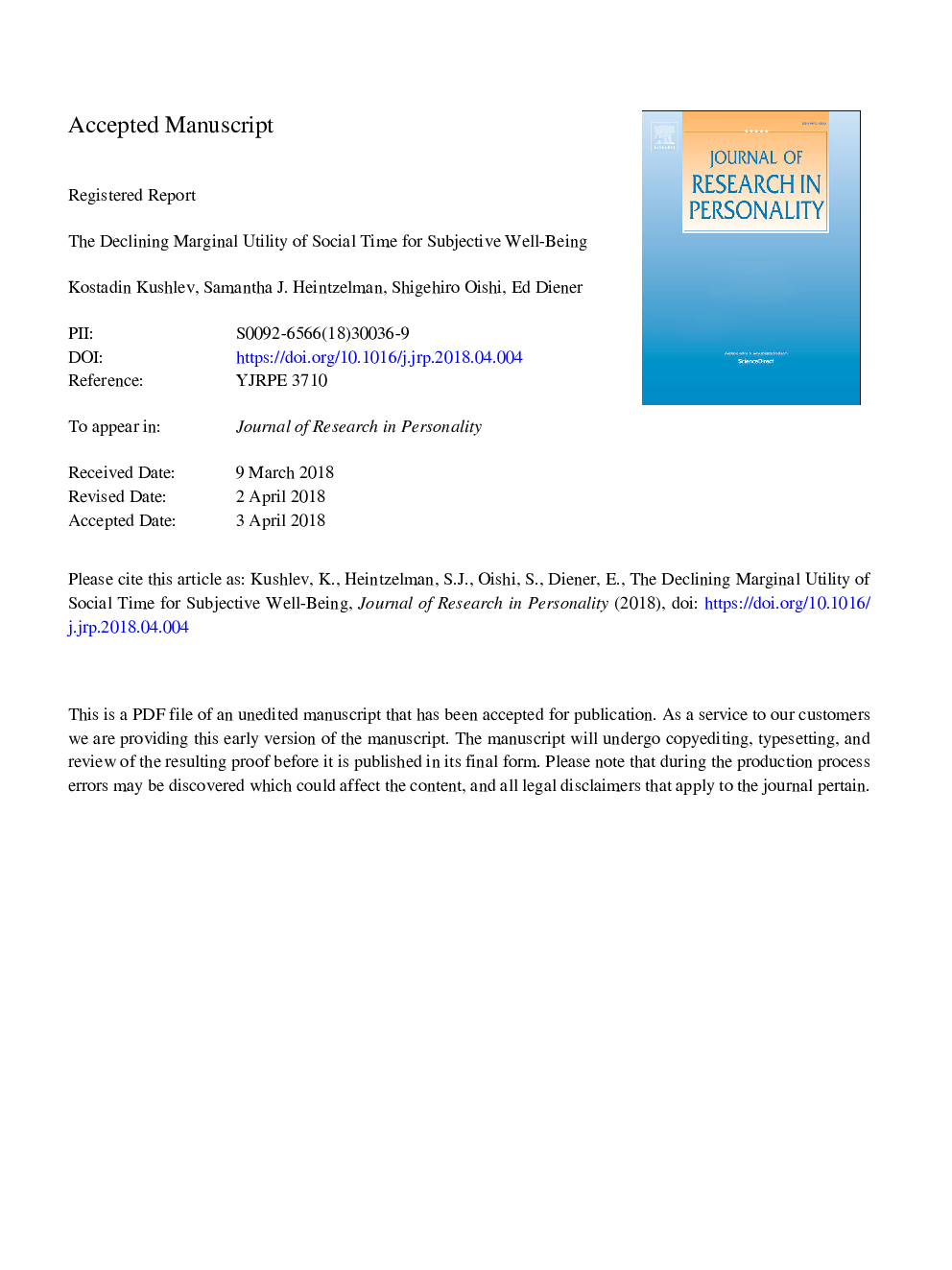| Article ID | Journal | Published Year | Pages | File Type |
|---|---|---|---|---|
| 7326359 | Journal of Research in Personality | 2018 | 63 Pages |
Abstract
Are people who spend more time with others always happier than those who spend less time in social activities? Across four studies with more than 250,000 participants, we show that social time has declining marginal utility for subjective well-being. In Study 1 (Nâ¯=â¯243,075), we use the Gallup World Poll with people from 166 countries, and in Study 2 (Nâ¯=â¯10,387) the American Time Use Survey (ATUS), to show that social time has declining returns for well-being. In Study 3a (Nâ¯=â¯168) and Study 3b (Nâ¯=â¯174), we employ the Experience Sampling Method (ESM) to provide initial evidence for both intra-domain (principle of diminishing satisfaction) and inter-domain mechanisms (principle of satisfaction limits). We discuss implications for theory, research methodology, and practice.
Keywords
Related Topics
Life Sciences
Neuroscience
Behavioral Neuroscience
Authors
Kostadin Kushlev, Samantha J. Heintzelman, Shigehiro Oishi, Ed Diener,
